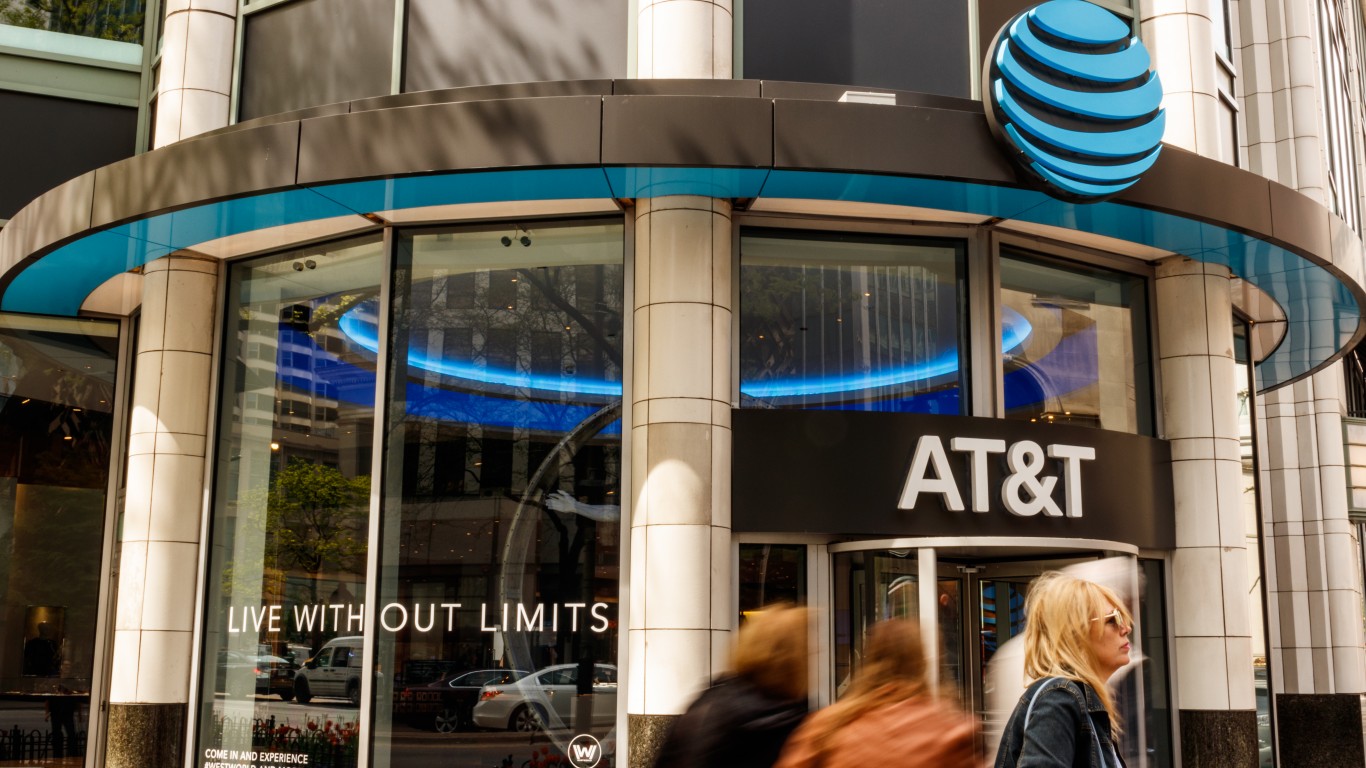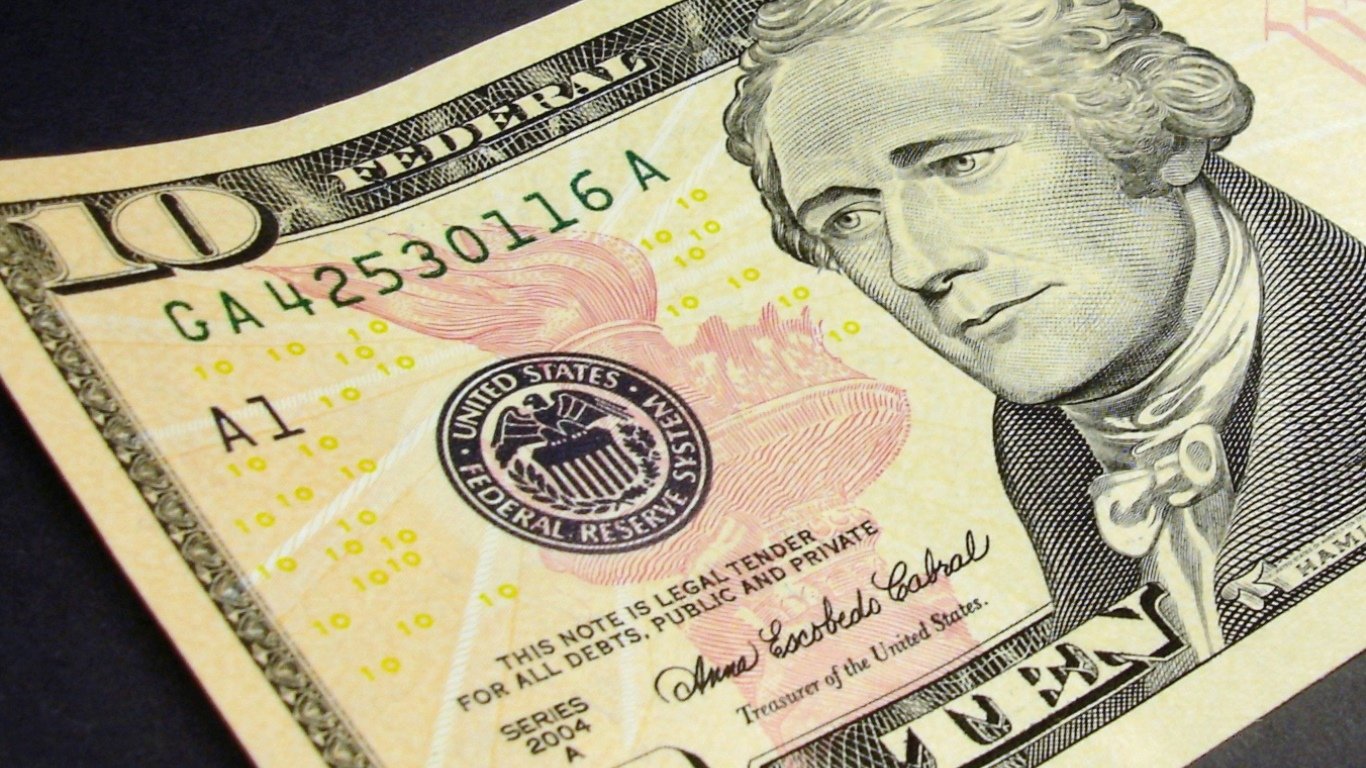

The three major U.S. equity indexes closed lower Monday, as equities tumbled following the report on home building release. The Dow Jones industrials closed down 0.7%, while the S&P 500 and the Nasdaq arch dipped by 0.8%. Eight of 11 S&P sectors closed lower. Health care (down 2.1%) and utilities (down 1.4%) were the big losers, while energy (up 2.3%) got the biggest boost.
The Census Bureau’s report on housing starts is due Tuesday morning and is expected to show a month-over-month dip of about 50,000 new homes being built. In early trading Tuesday, all three indexes were up by about 1.4% or more.
After markets closed Monday, IBM reported quarterly results that beat both profit and revenue estimates. While Big Blue said its outlook for the year’s second half remains unchanged, investors were not impressed. Shares traded down about 6.6% in the first 90 minutes of Tuesday’s regular trading session.
Before markets opened on Tuesday, Johnson & Johnson reported better-than-expected earnings and revenue while slightly trimming full fiscal year guidance. Shares were up less than 1% early Tuesday.
Lockheed Martin did not meet consensus expectations on either revenue or earnings. The defense contractor also reduced guidance, sending the shares down fractionally.
Halliburton beat consensus estimates on both the top and bottom lines. The stock traded down fractionally early Tuesday.
Truist Financial reported that it beat top-line and bottom-line estimates. Shares traded up more than 1%.
Our preview of companies reporting results late Tuesday or early Wednesday included Abbott Labs, ASML, Baker Hughes, Netflix and Omnicom.
These five companies will report quarterly results after Wednesday’s closing bell: Kinder Morgan, Las Vegas Sands, Steel Dynamics, Tesla and United Airlines.
Here is a look at five firms on deck to report results first thing Thursday morning.
American Airlines
Over the past 12 months, American Airlines Group Inc. (NASDAQ: AAL) has seen its share price decline by about 26.5%. For the second quarter of 2022, American and rival United are expected to post their first quarterly profit since before the pandemic. And as with United, rising costs for fuel and labor will likely weigh on profitability while revenues soar.
Unlike its rival, however, American faces debt maturities over the next three fiscal years totaling more than $15 billion. A lot has to go right for the airline to regain its past glory, and it would not take much to go wrong for American’s prospects to go sideways.
Analysts remain extremely cautious on American. Of 20 brokerages covering the stock, 15 have a Hold rating and just two have Buy ratings. At a recent share price of around $15.20, the upside potential based on a median price target of $17.00 is 11.8%. At the high target of $28.00, the upside potential is 84.2%.
Second-quarter revenue is forecast at $13.4 billion, which would be up 50.6% sequentially and by 79.1% year over year. American is expected to post adjusted earnings per share (EPS) of $0.75, up from a loss per share of $2.32 in the prior quarter and better than last year’s second-quarter loss of $1.69 per share. For the full 2022 fiscal year, the company is expected to post a loss of $1.15, compared to the year-ago loss of $8.38, on revenue of $48.4 billion, up 62%.
American stock trades at 7.7 times estimated 2023 earnings of $1.94 and 4.2 times estimated 2024 earnings of $3.59 per share. The stock’s 52-week range is $11.93 to $22.35. American does not pay a dividend. The company’s total return for the past 12 months was negative 20.7%.
AT&T
Shares of AT&T Inc. (NYSE: T) had added about 2.7% over the past year. It is not been pretty, though. Shares fell to a 52-week low in mid-December and have added about 29% since then. The stock remains about $8 below its 52-week high.
Rivals Verizon and T-Mobile report later this week or next. All three are facing rising costs and subscriber growth. Investors will be more interested in the mobile carriers’ outlook statements than in the results. Revenue and profit estimates show how little is expected from AT&T. The company had better not miss, nor should it provide an outlook that is the least bit cloudy with a chance of rain.
Sentiment on the stock remains slightly positive. Of 28 brokerages covering the stock, 13 have a Buy or Strong Buy rating, while 15 rate the shares at Hold. At a share price of around $20.70, the implied upside based on a median price target of $22.50 is 8.7%. At the high price target of $28.00, the upside potential is about 30.4%.
Second-quarter revenue is forecast at $29.48 billion, down 22.6% sequentially and 33.0% year over year. Adjusted EPS are forecast at $0.62, down 19.7% sequentially and 30.3% lower year over year. For the full 2022 fiscal year, EPS are expected to come in at $2.54, down 25.3%, on sales of $126.22 billion, down about 25.3%.
AT&T stock trades at 8.1 times expected 2022 EPS, 8.2 times estimated 2023 earnings of $2.52 and 8.1 times estimated 2024 earnings of $2.55 The stock’s 52-week range is $18.67 to $28.55. AT&T’s current annual dividend is $1.84 (yield of 5.37%). Total shareholder return for the past 12 months was about 5.4%.
D.R. Horton
Homebuilder D.R. Horton Inc. (NYSE: DHI) posted its all-time high stock price in mid-December and then dropped nearly a third of its value as of the most recent close. For the past 12 months, Horton’s stock has lost about 15% of its value. Rising interest rates and high home prices have treated consumer discretionary stocks harshly. In addition to raising interest rates, the Federal Reserve also has stopped buying mortgage-backed securities, weighing even more heavily on the housing market.
There are 22 brokerages covering Horton, and 16 have a Buy or Strong Buy rating. The others rate the shares at Hold. At a price of around $72.50 a share, the upside potential based on a median price target of $95.00 is 31%. At the high price target of $120.00, the implied upside is 65.5%.
Fiscal third-quarter revenue is forecast to total $8.91 billion, up 11.4% sequentially and 22.4% higher year over year. Adjusted EPS are forecast at $4.52, up 12.2% sequentially and by 42.9% year over year. For fiscal 2022, EPS are forecast at $17.01, up nearly 49%, on sales of $34.72 billion, up about 25%.
D.R. Horton stock trades at 4.3 times expected 2022 EPS, 4.8 times estimated 2023 earnings of $15.17 and 5.2 times estimated 2024 earnings of $13.94 per share. The stock’s 52-week range is $59.25 to $110.45. The company pays an annual dividend of $0.90 (yield of 1.23%). Total shareholder return for the past year was negative 15.7%.
Freeport-McMoRan
Over the past 12 months, shares of copper and gold miner Freeport-McMoRan Inc. (NYSE: FCX) had retreated by about 14.6%. Gold prices have dropped about 5.4% for the year to date and by about 16.5% from an early March high. Copper prices are down 23% for the year to date and by nearly 33% from the early March high. Inflation and recession fears have generated steep discounts on Freeport stock, but the longer-term outlook for copper is quite strong. Shares could be a bargain at current levels.
Of 21 analysts covering the stock, 11 have a Buy or Strong Buy rating and nine more have Hold ratings. At a share price of around $28.25, the implied gain based on a median price target of $39.00 is 38%. At the high price target of $60.00, the upside potential reaches 112.4%.
Second-quarter revenue is forecast at $6.21 billion, down 6.0% sequentially but up 8.0% year over year. Adjusted EPS are forecast at $0.71, down 33.7% sequentially and by 16.9% year over year. For the full 2022 fiscal year, analysts expect EPS of $3.24, up 3.7%, on sales of $24.68 billion, up about 8%.
Freeport stock trades at a multiple of 8.7 times expected 2022 EPS, 11.5 times estimated 2023 earnings of $2.46, and 10.6 times estimated 2024 earnings of $2.64. The stock’s 52-week range is $24.80 to $51.99. The company pays an annual dividend of $0.30 (yield of 1.18%). Total shareholder return for the past 12 months was 37.4%.
Philip Morris
The maker and distributor of Marlboro cigarettes outside the United States, Philip Morris International Inc. (NYSE: PM) has dropped about 3.4% from its share price over the past 12 months.
In May, the company offered to acquire Sweden-based tobacco and nicotine pouch maker Swedish Match for a tidy $16 billion. Since the offer was announced, activist investor Elliott Investment Management has been building a stake in Swedish Match that the activist hopes will allow it to derail the Philip Morris offer and agitate for a higher price. Under Swedish rules, Philip Morris must obtain at least 90% of the shares by the end of September or the deal falls through.
Sentiment on the company remains optimistic, if not bullish, with eight of 17 analysts rating the stock a Buy or Strong Buy and the other nine having Hold ratings. At a share price of around $90.60, the upside potential based on a median price target of $110.50 is almost 22%. At the high price target of $127.00, the upside potential is 40.2%.
Thank you for reading! Have some feedback for us?
Contact the 24/7 Wall St. editorial team.
 24/7 Wall St.
24/7 Wall St.


